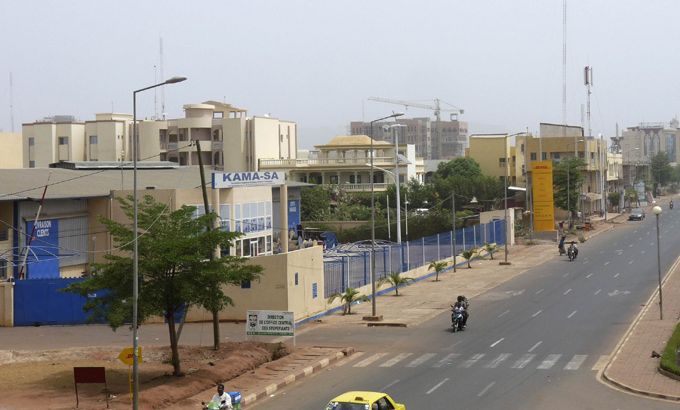Uncertainty in Mali after military coup
African Union urges soldiers to hand back power, while coup leader claims he is in control and Tuaregs claim gains.

The soldiers who toppled Mali’s president earlier this week face growing isolation, even as the coup leader is trying to assure the public that he is in control.
A delegation of UN and African officials have told those behind the internationally condemned coup to hand back power.
A joint mission of the African Union (AU) and the West African regional bloc ECOWAS are in negotiations with the rebel soldiers, Paul Lolo, the chairman of the AU’s Peace and Security Council, told Al Jazeera on Saturday.
“[The mission] is in negotiations with the rebels and it is our hope that they will listen to reason and return Mali to constitutional order without delay,” he said.
“This [coup] has been an insurgency, a seizure of power by force. There was a legitimate government in Mali. That government is still legitimate in our view because that is the government we know according to our instruments.”
Mutinous soldiers seized the presidential palace and Mali’s state television on Thursday, saying they were dissatisfied with President Amadou Toumani Toure’s handling of a rebellion by Tuaregs in the north of the country.
Lolo said the coup leaders had to step aside to ensure Mali moved forward in an orderly manner, but he said direct military intervention was not being contemplated at the moment.
Support uncertain
Meanwhile, coup leader Amadou Sanogo stressed unity and said he had no fears of a countercoup.
“Tuareg people in the north, Arab people, are our brothers. … I want all of them to come to the same table,” he told The Associated Press news agency in the capital, Bamako.
“Right now I’m in control of all the country.”
The 39-year-old captain has made regular appearances on state television in a bid to show that he is in charge.
Insisting he had the backing of all of the armed forces, he asked the camera to pan over representatives of the police, paratroopers, air force and paramilitary police. All appeared to be low-ranking officers.
Sylvain Touati, an associate fellow at the French Institute for International Relations, told Al Jazeera that it was uncertain how much support the coup leaders had inside Mali, and that a countercoup could not be ruled out.
“It seems they have connections within the army all over the territory but it’s not sure that all the sections, all the regiments and all the soldiers in different garrisons support the coup.
“Among the population, it’s clear that there is support for claims from the soldiers that they don’t have enough support from the state to fight against the [Tuareg] rebellion. There is a strong nationalist movement. But most of the population was not expecting a coup.”
The African Union has temporarily suspended Mali, while the European Union and Canada have frozen aid and the United States has threatened to follow suit.
Sanogo also issued a statement calling on soldiers to return to their barracks and reminding unit commanders they were responsible for their men, after residents accused troops of looting in the capital.
Few people ventured outside and there were complaints of cash machines running low on money and petrol shortages.
Rebel gains
In the north, Tuareg fighters said they had surrounded Kidal, a major city, on Sunday.
“Thanks to Allah the almighty and his blessings, we will soon take our land in Kidal,” said a statement issued by a group identifying itself as Ansar Dine (Defenders of Faith), adding that it wanted to establish Islamic law in the city.
Ansar Dine is fighting alongside the Azawad National Liberation Movement (MNLA) for the independence of the homeland of the nomadic desert Tuareg in the country’s north.
The Tuareg desert tribes that populate the north of Mali are a minority in the vast country. Reacting to what they say is neglect from Bamako, they have staged several uprisings in recent decades.
On January 17, they launched their first rebellion since 2009, boosted by the return of heavily armed fighters from Libya, who formerly served late leader Muammar Gaddafi.
Their forces have already taken several towns and scores of soldiers are said to have been killed and captured.
A presidential election in which Toure was to step down after two terms had been scheduled for April 29.
In a phone call with Senegalese President Abdoulaye Wade, Sanogo said Toure and his family were safe, according to a statement from Senegal.
Although Toure initially took power in a 1991 coup, he became known as the “Soldier of Democracy” because he handed power to civilians, and retreated from public life. Years later he re-emerged to win the 2002 election and was re-elected in 2007.
A dozen candidates were running in the April vote, which is now in jeopardy.